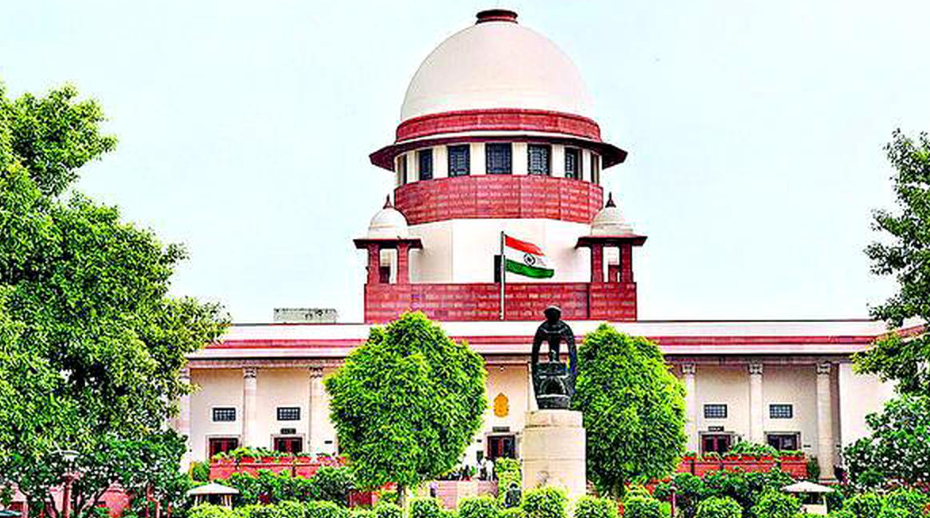Supreme Court Recalls 2022 Verdict Declaring Benami Law Provisions Unconstitutional (GS Paper 2, Governance)

Why in News?
- The Supreme Court of India has recently overturned its 2022 judgment that declared certain provisions of the Benami Transactions (Prohibition) Act, 1988, unconstitutional.
- This significant decision came after the Central Government filed a petition requesting a review of the previous ruling.
- As a result, the case has been referred for fresh consideration by a newly constituted bench of the Supreme Court, highlighting ongoing legal debates about the provisions and application of the Benami law.
Understanding Benami Transactions
- Definition: The term "benami" translates to "without a name," referring to transactions where assets are held by one individual (the benamidar) on behalf of another person, who is the actual beneficial owner. These transactions are often used to conceal the true ownership of property and can facilitate illicit activities, including money laundering and tax evasion.
- Legislative Intent: The Benami Transactions (Prohibition) Act, 1988, was enacted to deter individuals from engaging in benami transactions for illegal purposes. The Act nullifies any legal claims to beneficial ownership of properties acquired through such transactions, aiming to promote transparency in property ownership and combat financial crimes.
The Benami Transactions (Prohibition) Amendment Act, 2016
To enhance the effectiveness of the original legislation, the Benami Transactions (Prohibition) Amendment Act was introduced in 2016. Key features of this amendment include:
Comprehensive Definitions:
-
- Benami Transactions: Clearly defined to include transactions where property is held in a fictitious name, where the true owner is unaware of or denies knowledge of the ownership, or where the financier is untraceable or fictitious.
- Benamidar: A defined term referring to the person or entity in whose name the benami property is held.
Expanded Scope of "Property":
-
- The term "property" is broadly defined, encompassing movable and immovable assets, both tangible and intangible. This wide scope aims to cover all potential avenues for concealing ownership.
Authority Powers:
-
- The Act grants extensive powers to authorities to investigate benami transactions, including the ability to conduct inspections, enforce attendance of individuals, and compel the production of documents.
Confiscation and Penal Provisions:
-
- Authorities can provisionally attach properties believed to be benami. If confirmed as such, these properties can be confiscated by the Central Government.
- Individuals found guilty of engaging in benami transactions face rigorous penalties, including imprisonment ranging from one to seven years and fines up to 25% of the property's fair market value.
Background of the Case
Retrospective Application Controversy: One of the critical issues surrounding the 2016 amendments is their retrospective application. The Calcutta High Court ruled in December 2019 that the amendments did not apply retroactively, effectively protecting individuals from penalties for actions taken prior to the amendment.
2022 Supreme Court Judgment: The Supreme Court upheld this ruling, declaring Sections 3(2) and 5 of the Act unconstitutional. The court's rationale included:
- Violation of Article 20(1): The retroactive penalization for benami transactions violated the constitutional protection against retrospective punishment.
- Overly Broad Provisions: Section 5 was criticized for its vague language and lack of safeguards, leading to potential misuse and excessive authority being granted to enforcement officials.
The court also expressed concerns about the extensive powers granted to authorities under the Act, suggesting they could lead to arbitrary actions and violations of individual rights.
Review Petition by the Government
- In response to the Supreme Court's 2022 judgment, the Union Government filed a review petition, arguing that the ruling disrupted decades of established legal principles regarding benami transactions.
- The government contended that the Supreme Court’s decision extended beyond the central issue of retrospective application and declared the unamended Act's provisions unconstitutional, which was beyond the original scope of the case.
Key Highlights of the Recent Supreme Court Judgment
- Constitutionality of the Original Act: The Supreme Court clarified that the constitutionality of the provisions of the original Benami Transactions Act, 1988, was not in question during the original proceedings. The focus was solely on the amendments introduced in 2016 and their prospective or retrospective applicability.
- Fresh Adjudication Ordered: The court allowed the review petition, thereby setting aside the previous ruling. The case will be re-evaluated by a new bench, emphasizing the need for a thorough and active legal dispute for any constitutional challenge.
- Importance of Proper Adjudication: The Supreme Court underscored the significance of proper adjudication in legal matters involving constitutional challenges, indicating that the previous bench may not have fully addressed the complexities of the case.
Implications and Future Outlook
The Supreme Court's decision to recall its 2022 verdict represents a critical juncture for the legal interpretation of benami transactions in India. The upcoming hearings will not only influence the application of the Benami Transactions Act but may also set precedents for how laws can balance enforcement and constitutional rights.
- Legal Clarity: The fresh adjudication process will likely provide clearer legal standards regarding the application of the Benami Transactions Act, especially concerning its retrospective provisions.
- Impact on Property Rights: The outcome may significantly affect property rights in India, particularly for individuals and entities engaged in transactions that may be deemed benami.
- Broader Implications for Financial Regulation: The case may also impact broader financial regulations, influencing how authorities can enforce laws against money laundering and tax evasion while respecting individual rights.
- Public Awareness: The renewed focus on the Benami Transactions Act could enhance public awareness of the implications of benami transactions and the legal frameworks designed to combat financial misconduct.
In conclusion, the Supreme Court's recall of its earlier judgment marks a pivotal moment in India's legal landscape regarding property ownership and financial integrity. As the case progresses, it will be essential to monitor the evolving discussions around benami transactions and their implications for justice and accountability in financial practices.


